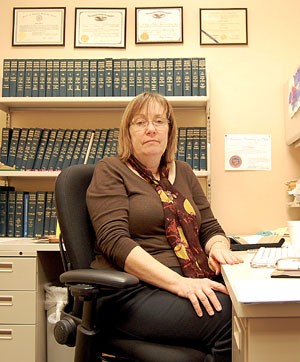When the Department of Homeland Security took the 15 hours of footage that media arts senior Justin Mashouf recorded in Iran this winter, he thought he would never see it again.
After being held and questioned by the department for more than five hours in Atlanta, without the use of his cell phone, Mashouf was sent home to Tucson a day later without any of the footage he had spent five weeks in Iran collecting for his senior project.
“”Being without your hours of work that you went somewhere to make, after all this money and all this time was spent working on it, to come back and have nothing is the most worthless, hopeless feeling,”” Mashouf said.
Then he made a call to Susan Ferrell, an attorney with the Associated Students of the University of Arizona’s Legal Services, who changed everything.
Homeland Security, and later the FBI, had possession of Mashouf’s video tapes for a month until Ferrell was able to get through to the agent who held the tapes and get the footage back in the hands of its owner.
“”This could have taken a year for me to get my footage back,”” Mashouf said. “”I attribute me getting my tapes back so much faster because of (Ferrell).””
ASUA Legal Services provides free legal advice for all UA students. Ferrell, the program’s only attorney, earned her law degree from the UA in 1985 and has been with the program since its reinstatement in 1993.
Ferrell is employed by the UA. Under Arizona Board of Regents policy, she can’t refer students to attorneys when legal action is advised.
She takes students by appointment only for 30 minutes each in her office, Room 325 of the Student Union Memorial Center. She works from 9:30 a.m. to 2 p.m. and said she sees approximately 34 students a week.
The legal issues Ferrell encounters range from traffic violations to divorce, but tenant matters, including breaking leases and maintenance problems, emerge the most, she said.
Ferrell said she has seen an increase in the number of DUI citations since the legal blood-alcohol limit was lowered to .08 three years ago, and for every 50 UA students cited for drinking, one is charged with marijuana possession.
In her office, there is an array of brochures with titles such as “”Know Your Credit Cards”” and “”Drinking, Fake ID’s, Parties and the Law,”” all of which Ferrell wrote.
While most issues she sees can be settled out of court, there have been some instances where students have had to pursue legal action.
One such case is that of Luis Carlos Romero-Davis, a Latin American studies graduate student.
Romero-Davis paid a Nogales, Ariz., car repair shop $1,200 for transition maintenance. After returning the car multiple times because the original problem hadn’t been fixed and the repairman kept asking for more money, Romero-Davis went to Ferrell.
She told him to write a letter to the repairman outlining the problem and requesting financial compensation. When the repairman told Romero-Davis he would not fix the car, Romero-Davis was advised to take the repairman to court.
Romero-Davis won the case and ended up returning to Ferrell’s office shortly after because the man refused to pay the judgment.
Even after the court constable was called to collect his money, the man still refused to pay, and Romero-Davis had to freeze the repairman’s bank accounts to finally get the money he was awarded in the case.
“”I can say that every single time that I have sought her advice, I have obtained positive results on my behalf,”” Romero-Davis said. “”She has been so helpful to me that I strongly recommend her to every student that I run into that needs help.””
Legal Services also offers a one-credit, 50-hour internship for one law student each semester. This semester, the intern is Sarah Langer, a third-year law student.
The course, Legal Service Interviewing, lets the intern sits in on client appointments.
“”The point is to let students see how client interviews look like on a real-life basis,”” Langer said. “”This is experience they don’t offer you in law school.””









